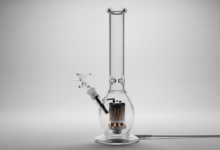Can Cdl Drivers Smoke Cbd

The intersection of CBD use and CDL drivers raises significant concerns. While CBD may provide therapeutic benefits, the legal and regulatory landscape is complex. Federal regulations impose strict guidelines on substance use, with potential repercussions for positive drug tests. Understanding how THC content in CBD products can affect a driver's career is crucial. CDL holders must navigate these challenges carefully to avoid jeopardizing their livelihoods while exploring the potential benefits of CBD.
Understanding CBD and Its Legal Status
Although the legal landscape surrounding cannabis products can be complex, understanding the legal status of cannabidiol (CBD) is crucial for various stakeholders, including commercial driver's license (CDL) holders.
CBD benefits, such as pain relief and anxiety reduction, are widely recognized. However, the legal implications of CBD use can vary by state, necessitating careful consideration to ensure compliance and protect one's professional standing.
Federal Regulations for CDL Holders
While CBD may offer potential benefits, CDL holders must navigate a stringent set of federal regulations that govern substance use in the transportation industry.
CDL restrictions explicitly prohibit drivers from using substances that could impair their abilities.
Despite CBD's purported therapeutic effects, concerns remain regarding its potential impact on driving performance, making it essential for CDL holders to understand the implications of CBD effects on their regulations.
Drug Testing Policies and CBD Use
Given the complexities surrounding CBD use, CDL drivers must be particularly vigilant regarding drug testing policies within the transportation sector.
The unpredictable CBD effects, including the potential presence of THC in some products, pose significant employment implications. Drivers may face disciplinary actions or job loss if tested positive, highlighting the necessity for awareness and caution when considering CBD consumption in relation to their professional responsibilities.
Best Practices for CDL Drivers Considering CBD
CDL drivers frequently encounter challenges when considering the use of CBD, necessitating a careful approach to ensure compliance with regulations and workplace standards.
To maximize CBD benefits while mitigating potential health risks, drivers should consult healthcare professionals, choose products with verified THC levels, and stay informed about evolving legal frameworks.
Adopting a cautious mindset is essential for maintaining both health and career stability in this context.
Conclusion
In conclusion, CDL drivers must navigate the intricate relationship between CBD use and federal regulations carefully. For instance, a hypothetical driver, Alex, who employed CBD for chronic pain relief, faced a positive drug test due to trace THC in the product. This scenario underscores the importance of selecting verified, THC-free CBD options and staying informed about legalities. Ultimately, a cautious and informed approach is essential for CDL drivers to protect their careers while exploring potential therapeutic benefits of CBD.






